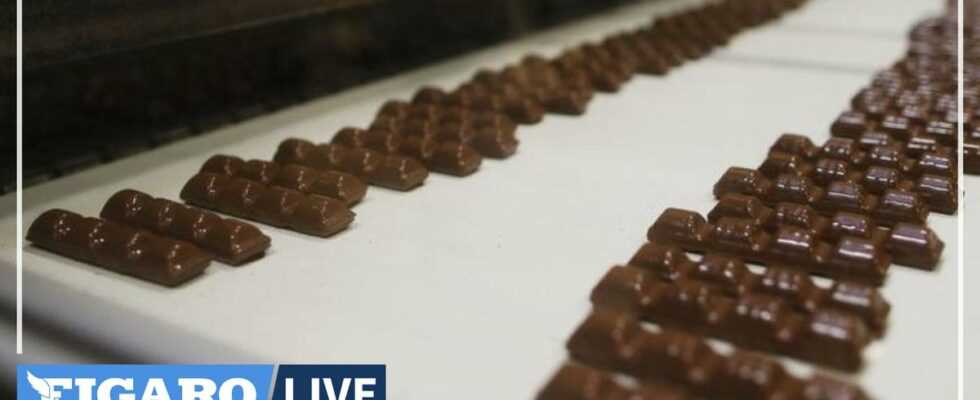According to Public Health France, the consumption of some of these products preceded the appearance of symptoms in 15 patients questioned.
It’s a reminder that comes at the worst time for Ferrero, less than 15 days from Easter. The Italian group is forced to recall in France certain batches of Kinder chocolate products manufactured in Belgium due to a link “potential” with cases of salmonella, he said on Monday. The recall concerns the equivalent of hundreds of tons of chocolates, said a spokeswoman.
Read also“It must never happen again”: parents of hospitalized children organize to file a complaint against Buitoni
If Ferrero France indicates “that none of the brand’s products placed on the French market has tested positive for salmonella”, the group preferred to play the precautionary principle. For its part, Public Health France indicates that “these recalls follow an outbreak of salmonellosis in several European countries“. In France, 31 cases have been detected, eight of whom have been hospitalized. “The investigations carried out by Public Health France revealed the consumption of certain Kinder brand products subject to this withdrawal-recall in the days preceding the onset of symptoms in the 15 patients who could be questioned at this time.“said the health agency. These products were manufactured in a single factory, in Arlon, Belgium.
Read alsoRecall of Kinder products: what you need to know about salmonella
Are concerned Kinder Surprise 20g (by one, by three, by four and by six) and 100g with expiry dates between the end of June 2022 and the end of October 2022; Kinder Schoko-Bons with expiry dates between the end of April and the end of August 2022; Kinder Mini Eggs with expiry dates between the end of April and the end of August and finally Kinder Happy Moments, Kinder Mix: 193g, Basket 150g, Plush 133g, Bucket 198g, with expiry dates at the end of August 2022.
Recalls in Belgium and the United Kingdom
Ferrero advises not to consume the product, keep it and contact its consumer assistance team on 08 00 65 36 53 and [email protected]. Reimbursement is possible from the company, underlines Public Health France. After taking a photo of the packaging with the product references, the public establishment advises the persons concerned to “throw them away immediately“. Those who have consumed products subject to a recall and who present symptoms (gastrointestinal disorders, often accompanied by fever) “are invited to consult their doctor without delay by informing him of this consumption“, indicates Public Health France.
In Belgium, the Federal Agency for the Safety of the Food Chain (AFSCA) called on consumers on Monday not to consume these products. “following a series of outbreaks of Salmonella declared in different Member States”. However, no cases have been confirmed in the country. British authorities reported a recall as early as Saturday for the same reason.
Bad timing for Ferrero
As for chocolate makers, we really do not say we are concerned by the problem. “There is zero risk of contamination for us“says Christophe Bertrand, Secretary General of the Confederation of Chocolate Makers and Confectioners of France. “In chocolate, it cannot happen normally, because it is an anhydrous medium (which does not contain water, editor’s note), therefore not favorable to the development of salmonella“, specifies the chocolate maker Jean-François Morin, based in the Drôme. According to him, if there was contamination in the Belgian Ferrero factory in question, it probably came from “outside“.
For Ferrero, the consequences could be serious, this recall coinciding with the most lucrative period of the year for the sector. Ferrero France (1.3 billion euros in turnover) makes about 10% of its sales during Easter week, in particular on its flagship brands Kinder and Ferrero Rocher. If the products withdrawn represent several hundred tons of chocolates, it remains difficult to measure the financial impact for the group. The batches concerned will thus be quickly replaced. But consumers will surely remain reluctant to buy them in the coming days. Last June, the withdrawal recall by the giant Mars of several of its ice creams in France, in full launch of the summer season, had cost it 20% of its turnover achieved on this department during the summer. And this while the reason (an ethylene oxide content higher than the standard on one of its ingredients) presented no health risk.
